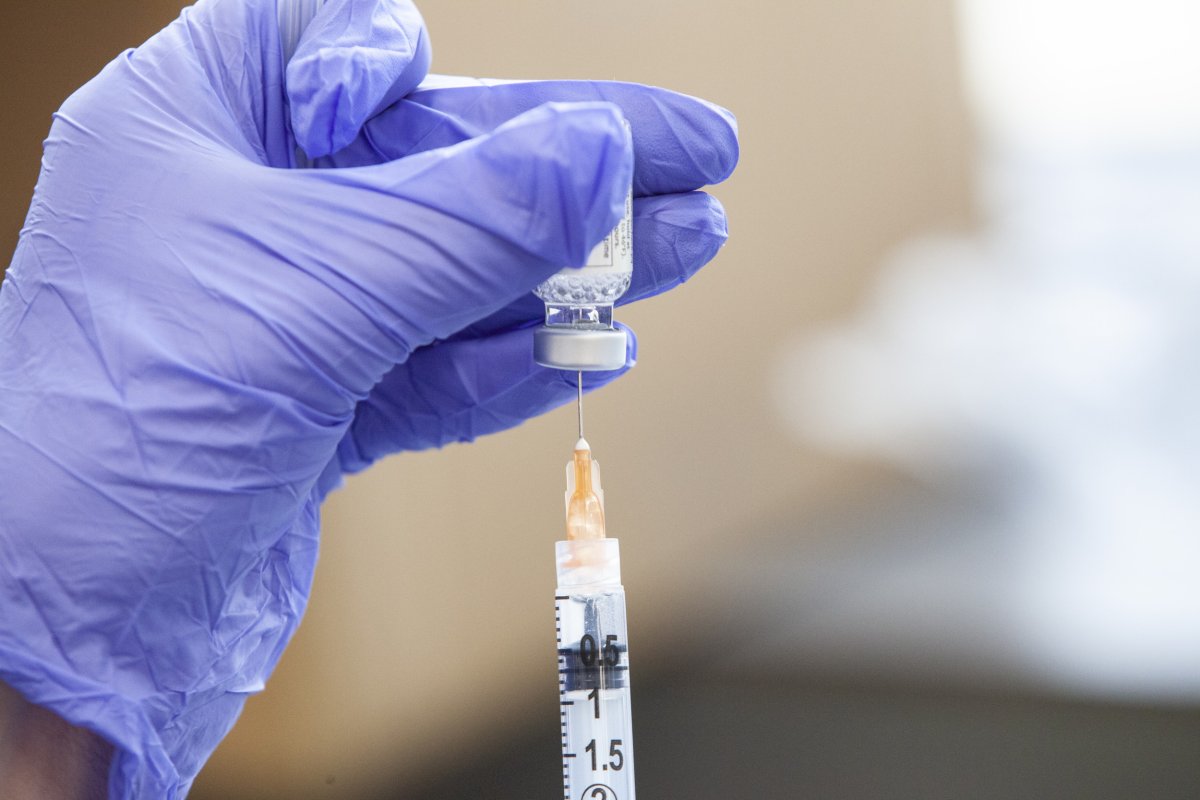I was one of the last people in the U.S. to get the Johnson & Johnson vaccine, breezing into Walgreens for my jab the day before federal health agencies called for a pause. I never thought twice about getting a coronavirus vaccine, but now I'm monitoring my 45-year-old female body for blood clots and feeling solidarity with vaccine hesitators. If public health officials want to build trust in people like me, they might start with these two words: I'm sorry.
The words "I'm sorry" show contrition, humility and concern for individuals—attributes that public health officials would do well to demonstrate to a public primed to believe a lot of people in government are "drunk with power." An apology—a good apology—doesn't seek to defend or exonerate the speaker. Instead, it shows genuine empathy and compassion, and it acknowledges a bad situation. Most importantly, it signals respect for those who are harmed, even if the harm isn't an adverse physical reaction, but mounting anxiety and a sinking sense of betrayal.
When I opted to get the J&J vaccine, as opposed to taking an appointment for the Pfizer vaccine 48 hours later, I was motivated by all the assurances that the three vaccines were equally good, and all the admonitions that I should take the first available to me. Now I can't help but wonder if public health officials were so uniform in their enthusiasm for J&J because its one-and-done and easier-to-store nature were important for the overall vaccination strategy, not necessarily because it was good or safe for me. I also wonder if a handful of women experience unexpected serious side effects now, what unanticipated problems will crop up later?
These are the concerns I'd like health officials to speak to; I'm not actually wondering if the pause means that science is working. Engaging with the genuine thoughts and feelings of the audience strikes me as a much better communications strategy than, for example, insisting that women's hormonal birth control comes with a risk blood clots—especially because some of us don't use birth control pills, partly because we don't like the possible side effects.
CDC spokespeople, physicians and researchers who are often called on to explain twists and turns of the pandemic may well be worried that including an apology in their remarks would leave them open to a lawsuit; in short, they would be accepting liability. Yet saying sorry, especially in medical situations, turns out to decrease the risk of getting sued and speed resolution. If lawsuits proceed anyway, the reason may not be that health care provides said they were sorry; it might just be that they were bad at apologizing and managed to provoke their audience more.
My fear is that communication about the J&J pause falls into this category of an unsatisfying, even annoying response. In article after article, professionals commenting on the situation do little to acknowledge that getting a rapidly-developed vaccine means accepting an uncertain and shifting level of risk, and that feels uncomfortable. Instead, they double-down on reminding the public that serious side effects are rare, intimating that wary Americans' vaccine concerns are immaterial.

The history of communications following product problems shows how wrong-headed that mindset is. Harvard Business Review quoted Andy Grove, the CEO of Intel who presided over a 1994 crisis of consumer confidence following the failure of a few Pentium microprocessors, saying, "The kernel of the issue we missed ... was that we presumed to tell somebody what they should or shouldn't worry about, or should or shouldn't do."
If I'm reacting poorly to the current public health communications about the J&J vaccine, that's a very bad sign. After all, I'm the kind of person who would have a "Thank you, Dr. Fauci" sign on her lawn. So let me suggest something that public health officials might say:
"Getting a vaccine—and one authorized only under emergency approval, no less—is the right thing to do. It's a leap of faith and a show of solidarity for your fellow humans. Everyone who's been vaccinated against the coronavirus deserves credit for their courage. Now many of you are worried that you've taken on more risk than you bargained for. We don't really know who—if anyone—will develop serious side effects later. For the anxiety that causes, we're sorry."
I understand that public health officials are terrified people are going to start getting jumpy about a couple bad results, and now we'll never get the world vaccinated soon enough to stop the pandemic. But if they want a way through that bind, the first step is to stop considering the problem from their perspective. I ask them instead to consider instead the vulnerability so many are feeling right now and to speak honestly to that.
Kelly J. Kelly is a writer in Washington, D.C., and a coach with the Public Voices Fellowship at the OpEd Project.
The views expressed in this article are the writer's own.
Uncommon Knowledge
Newsweek is committed to challenging conventional wisdom and finding connections in the search for common ground.
Newsweek is committed to challenging conventional wisdom and finding connections in the search for common ground.
About the writer
To read how Newsweek uses AI as a newsroom tool, Click here.








